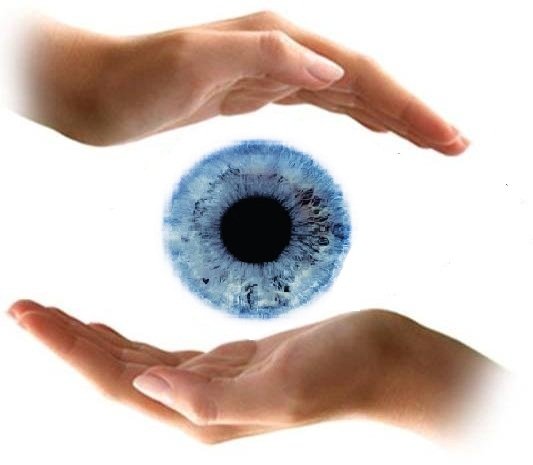Is Refractive Surgical Treatment Right for You? Factors to Think About for Better Eyecare
In the realm of eye care, the decision to go through refractive surgical procedure is a crucial one that requires thoughtful factor to consider. From the details of one's eye wellness to the details of individual expectations and day-to-day routines, each element holds relevance in the wider landscape of refractive surgical treatment candidacy.
Eye Health Evaluation
When considering refractive surgical procedure, a thorough eye wellness examination is important to evaluate the suitability of the treatment for every individual. eye doctors in andalusia. This evaluation entails a series of assessments and examinations carried out by an eye care specialist to figure out the overall wellness of the eyes, the presence of any type of underlying problems, and the stability of the refractive error
During the analysis, different elements are taken into consideration, such as the individual's case history, current eye prescription, corneal density, pupil dimension, and tear film top quality. These assessments aid to identify any kind of contraindications to refractive surgical treatment, such as corneal problems, cataracts, or without treatment eye infections. Additionally, the assessment aids to handle patient expectations pertaining to the prospective end results of the surgery based upon their one-of-a-kind eye qualities.
Ultimately, the eye health and wellness examination is essential in guaranteeing the security and performance of refractive surgical procedure, as it provides important insights into the person's eye health and wellness standing and aids establish one of the most suitable therapy options for achieving optimal visual outcomes. (andalusia pediatrics)
Way Of Life Evaluation
An extensive way of living analysis is essential in determining the viability of refractive surgery for a person's visual modification needs. Way of living elements such as line of work, hobbies, and day-to-day activities play a critical role in the decision-making procedure regarding refractive surgical treatment.
Furthermore, way of life practices such as sports engagement, outside activities, or even skin care regimens can influence the healing process and overall success of refractive surgery. By conducting an extensive way of living assessment, eye treatment specialists can tailor their recommendations and treatment plans to satisfy the unique requirements of each client, inevitably leading to enhanced visual end results and satisfaction.
Expectation Alignment

Clients require to understand that while several individuals accomplish 20/20 vision or far better adhering to refractive surgical treatment, some might still need glasses for particular activities like reading or driving at night. Managing these expectations aids stop frustration and dissatisfaction post-surgery, leading to a much more favorable total experience for the person.
Risk Analysis

Aspects that might boost the threat of difficulties include age, certain clinical conditions like autoimmune diseases, unstable vision prescription, thin corneas, and impractical patient assumptions. Furthermore, choosing a skilled and experienced surgeon, adhering to pre and post-operative care more directions diligently, and disclosing any kind of appropriate medical history can aid alleviate risks.
To minimize the probability of difficulties, ophthalmologists conduct comprehensive pre-operative examinations to recognize any kind of contraindications to surgical procedure. They pop over to this web-site additionally talk about the possible risks and benefits with people throughout the examination procedure. By taking part in open communication and shared decision-making, both the individual and the eye doctor can collaborate to figure out if refractive surgical treatment is the right selection based on specific danger profiles and preferred outcomes.
Assessment Importance
Considering the important duty of notified decision-making in examining dangers and possible issues in refractive surgical treatment, the assessment procedure holds substantial significance in directing individuals in the direction of ideal end results. Throughout the examination, the eye doctor assesses the client's eye health and wellness, refractive mistakes, and general viability for surgical procedure. This preliminary evaluation is crucial in identifying the most ideal procedure for every person, taking into account variables such as corneal thickness, pupil size, and existing eye problems.
Furthermore, the examination acts as an opportunity for patients to review their expectations, issues, and any questions they might have pertaining to the surgery. Clear communication in between the cosmetic surgeon and the person is important to make certain practical assumptions and a comprehensive understanding of the prospective dangers and benefits entailed.
Furthermore, the appointment permits the specialist to explain the various surgical options available, their particular end results, and the post-operative care needed. This thorough conversation empowers individuals to make well-informed choices regarding their eye treatment, resulting in better contentment and results post-surgery.
Final Thought
To conclude, people taking into consideration refractive surgical treatment ought to go through a detailed eye wellness examination, assess Continued their lifestyle practices, straighten their assumptions with potential end results, analyze the involved dangers, and prioritize assessments with eye care experts. These elements play an essential role in determining the viability of refractive surgical treatment for each individual, ensuring optimum results and complete satisfaction with the procedure.
People thinking about refractive surgery usually have high assumptions pertaining to the end results, anticipating best vision without the requirement for glasses or call lenses. While refractive surgical procedure can considerably boost vision and reduce reliance on aesthetic aids, it is essential for people to understand that outcomes may vary based on individual factors such as the level of refractive mistake, corneal density, and total eye health.
By involving in open communication and shared decision-making, both the patient and the eye doctor can function together to figure out if refractive surgery is the right choice based on individual danger accounts and wanted end results.
Taking into consideration the crucial function of educated decision-making in evaluating dangers and possible difficulties in refractive surgical treatment, the assessment procedure holds considerable significance in guiding individuals towards ideal results. Throughout the appointment, the ophthalmologist assesses the person's eye wellness, refractive mistakes, and total viability for surgical treatment.